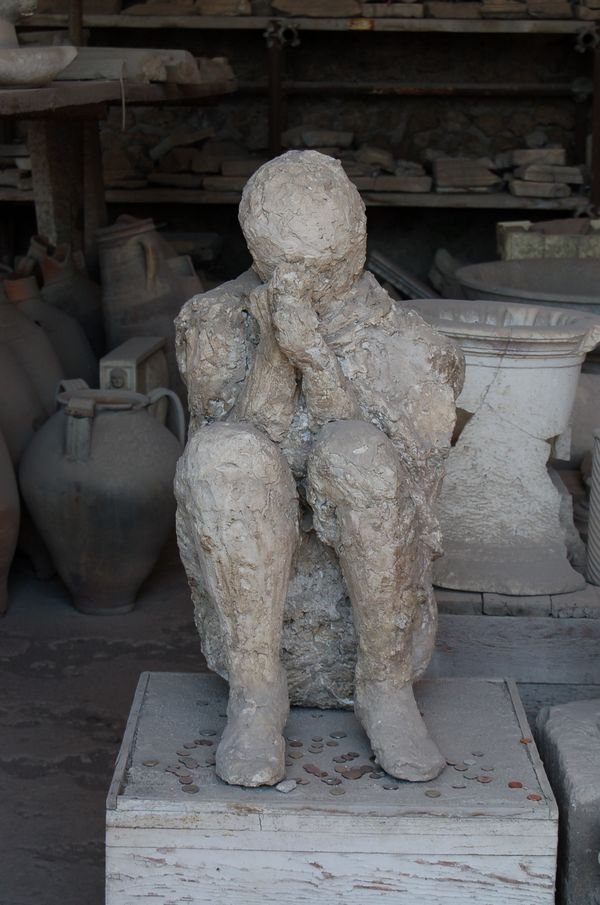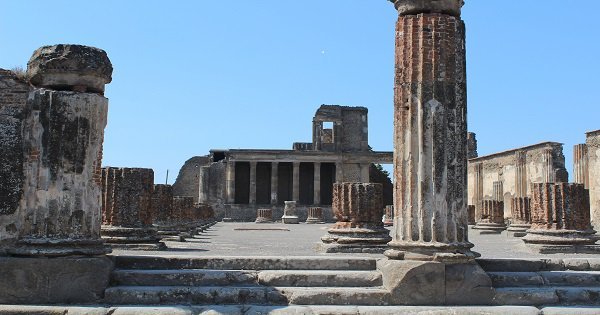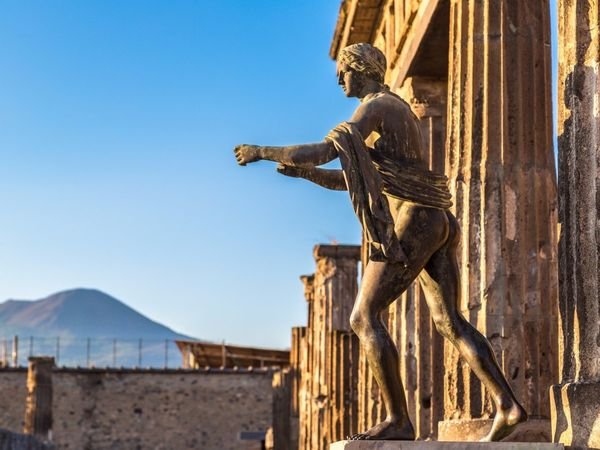Life is unpredictable and nature always has a heavy hand. Among the events of history's most destructive natural disasters that crushed civilizations and reduced cities to rubble, the one that engulfed Pompeii is perhaps the most haunting.
1700 years ago, residents of a prosperous Italian city called Pompeii were caught unawares when a heavy rain of molten ash and pumice as hot as 1300 degree Fahrenheit started pouring. A deadly volcano Mount Vesuvius had erupted striking the city with disaster. Those who couldn't escape choked to death and got buried inside a thick layer of ash. When the survivors came back looking for their belongings, they found that their city had been wiped off the face of the earth, as if it never existed. The entire city was submerged, as it was, under a 20 foot thick blanket of volcanic material.
It was later in 1748 that scientists, during an excavation, found the city sleeping intact in the lap of time.
It was later in 1748 that scientists, during an excavation, found the city sleeping intact in the lap of time.
It is heartbreaking to see the remains of people; people who were once alive; people who died trying save themselves; people who died hoping for a miracle to save them. And the fact that they have remained frozen in that moment for 1700 years is nothing short of awe-inspiring.
The volcanic eruption lasted for 24 hours and took more than 2000 lives. Scientists discovered that molten ash and pumice had hardened around the bones of decayed bodies like a mold. They used plaster to determine the exact position and other details of the bodies.
It revealed that people died wherever they were at the time of the eruption - some taking shelter under the stairs, some holding each other, and the others crouching or crawling. Some of the bodies even depict facial expressions and impression of the kind of clothes they were wearing at the moment.


The volcanic cloud that burst was twice the height of Mount Everest!
The cloud of volcanic debris released by Vesuvius was more than twice the height of Mount Everest. It engulfed the entire city and nearby areas within the periphery of 500 kilometres, covering it with a thick layer of ash and pumice.
Writer 'Pliny the Younger' saw the destruction from a distance. His handwritten letters to a friend are the most reliable and vivid accounts of the disaster. He wrote:
Writer 'Pliny the Younger' saw the destruction from a distance. His handwritten letters to a friend are the most reliable and vivid accounts of the disaster. He wrote:
"We had scarcely sat down to rest when darkness fell, not the dark of a moonless or cloudy night, but as if the lamp had been put out in a closed room."
And
"I believed I was perishing with the world, and the world with me.”
Pompeii: A window to the life of ancient Roman civilization
The ancient city had restaurants, cafes, gymnasium and an amphitheater with a capacity to accommodate 20,000. Excavations also reveal walls with slogans painted from the politicians contesting elections. The city located near the Gulf of Naples served as a vacation spot for the wealthy Romans. Visitors resided in magnificent villas constructed on both sides of the streets.
Tons of ash that submerged the city cut off the supply of air and moisture, thus preserving it exactly the way it was.


The excavation continues even today.
First discovered in 18th century, the excavation is still going on with three-fourth of the city unearthed, and one fourth yet to be discovered.
Visiting Pompeii is like travelling back in time. The city's artifacts, buildings, household items, statues, wall paintings and decorations are all intact. Surprisingly, some loaves of bread have also been found!

Vesuvius may erupt again
While excavation of the remaining city is carried out, experts believe that another Vesuvius eruption can occur anytime again in the future. If this is true, then there's a population of 3 million that resides at the verge of danger.

No comments:
Post a Comment